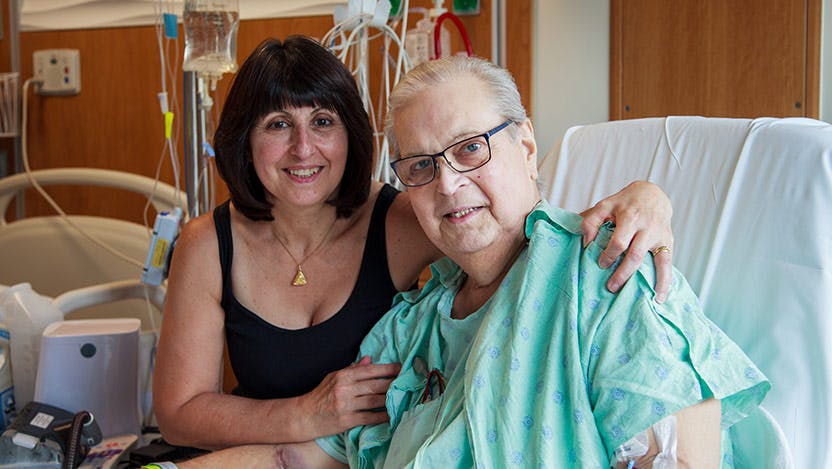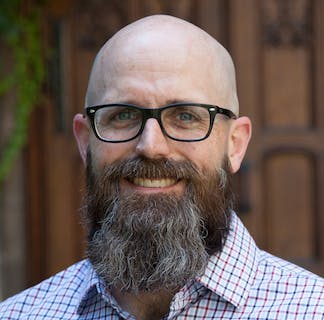The Big Save: Doctors use ECMO to bridge patient to successful lung transplant

Joseph Anderson said he realized how close he was to death before his lung transplant when one of the medical residents started calling him "The Big Save."
Anderson, 61, a retired parts and service director from Buffalo Grove, Ill., had been suffering from pulmonary fibrosis, a respiratory disease that causes scarring in the lungs and makes it difficult to breathe. His disease had been slowly progressing, and on May 15, 2017, (the day after Mother's Day) he was placed on the waiting list for a lung transplant. It was just in time, because the next day his condition rapidly deteriorated. Five days later he was sent to the University of Chicago Medicine to begin ECMO treatment until he could get a transplant.
ECMO, or extracorporeal membrane oxygenation, uses a pump to circulate blood through an artificial lung that oxygenates the blood. Tae Song, MD, surgical director of the lung transplant program and director of the acute cardiopulmonary support/ECMO program at UChicago Medicine, said it provides a way to get sick patients to lung transplantation, who previously would not have survived.
ECMO, or extracorporeal membrane oxygenation, uses a pump to circulate blood through an artificial lung that oxygenates the blood, providing a way to get sick patients to lung transplantation, who previously would not have survived.
Song and his colleagues use ECMO to support about a third of their patients during surgery, but it is less common to use it as a bridge to transplant, as in Anderson's case. UChicago Medicine was recently recognized by the Extracorporeal Life Support Organization (ELSO) as a Center of Excellence, one of only two adult ECMO Centers in the state of Illinois that have this designation. It's a unique continuum of care that UChicago Medicine can offer, with the team's experience in mechanical circulatory support and as a leading transplant center.
"For a patient like Mr. Anderson, who was very sick in the first place but rapidly decompensated, we're in a position where we can support him until he can get a transplant," Song said. "We were able to use ECMO before, during and after surgery, to ensure that he had the best chance of a successful transplant."
Anderson and his family got the call that a set of lungs was available a week after he started ECMO treatment, the same day of his daughter's graduate school graduation. The next day, Song and his team performed a successful bilateral lung transplant.
The experience was surprisingly painless, Anderson said. "I wondered if they did it or not," but, "I walked away with a better understanding of life, and an appreciation of the whole medical team. They are hands on and give you so much support. We can't tell you how grateful we are that they're here."
Extracorporeal Membrane Oxygenation (ECMO)
Extracorporeal membrane oxygenation (ECMO) is the only mechanical support for both the heart and lungs. ECMO provides oxygenation and circulation for patients who are experiencing heart and lung failure.
Read frequently asked questions about ECMO
